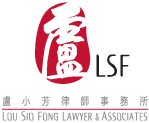Best International Trade Law Lawyers in Macao
Share your needs with us, get contacted by law firms.
Free. Takes 2 min.
List of the best lawyers in Macao, Macao
About International Trade Law in Macao, Macao
International Trade Law in Macao governs the commercial exchange of goods and services between Macao and other jurisdictions. It is influenced by local legislation, the Basic Law of Macao, and international treaties and conventions to which Macao is a party under China’s umbrella. The law covers the regulation of imports, exports, customs procedures, trade compliance, foreign investment, dispute resolution, tariffs, and restrictions related to international commerce. Key areas also include anti-money laundering measures, export controls, and observance of World Trade Organization (WTO) obligations. Macao’s position as a Special Administrative Region allows it a high degree of autonomy in formulating its trade policies, which helps promote its role as a free port and an international trade and tourism hub.
Why You May Need a Lawyer
Navigating International Trade Law in Macao can be complex, especially for businesses and individuals unfamiliar with local rules and cross-border legal requirements. Common situations where legal assistance can be critical include:
- Setting up an import-export business and ensuring compliance with permits and licensing requirements
- Negotiating international contracts or resolving disputes arising from cross-border transactions
- Understanding and complying with customs regulations, tariffs, and trade restrictions
- Dealing with anti-dumping, countervailing measures, or safeguard regulations
- Managing intellectual property protections associated with internationally traded goods
- Handling issues related to trade finance and payment mechanisms
- Ensuring compliance with anti-money laundering and sanctions regimes
- Navigating foreign direct investment rules and incentives
- Addressing administrative penalties or defending enforcement actions by customs or regulatory authorities
A qualified lawyer can help clarify legal obligations, draft compliant documents, engage with authorities on your behalf, and provide solutions in case of disputes or audits.
Local Laws Overview
International Trade Law in Macao is shaped by a combination of local statutes, regulations, and international standards. The following are key aspects relevant to those engaging in international trade:
- Import and Export Regulations: Macao follows the Import and Export Law (Law 7/2003), which sets out general rules for the movement of goods, licensing, restrictions, and prohibitions aligned with public health, safety, and security needs.
- Customs Procedures: The Macao Customs Service (SA) is the main authority for import-export control and enforcement of customs duties and trade compliance.
- Free Port Status: Macao is a free port with no quotas or general tariffs on most goods, but some items are regulated or prohibited, and select goods are subject to excise taxes.
- WTO Membership: Through China's membership, Macao participates in the WTO, applying its core principles such as anti-dumping and dispute resolution mechanisms.
- Foreign Investment: Macao allows significant freedom for foreign investment but requires compliance with sector-specific rules and registration processes.
- Trade in Services: As a regional tourism and gaming hub, legal provisions also govern the cross-border supply of services, including licensing and regulatory oversight.
- Dispute Settlement: International trade disputes may be resolved through arbitration, mediation, or litigation in accordance with Macao law and applicable international agreements.
- Export Controls and Sanctions: Certain strategic materials and dual-use items are subject to export control, and Macao implements UN Security Council resolutions on sanctions.
Frequently Asked Questions
What documents are required to import or export goods in Macao?
You generally need an import or export declaration, commercial invoice, packing list, bill of lading, and any licenses or permits for restricted items. Documentation must comply with the requirements set by the Macao Customs Service.
Are there tariffs or taxes on imports in Macao?
Most goods imported into Macao are duty-free due to its free port status, but certain goods like tobacco, alcohol, fuels, and vehicles are subject to excise taxes.
Is Macao subject to Chinese trade laws?
Macao has its own legal system and trade laws, but it follows international agreements that China has entered into for the region, including WTO commitments.
Can foreigners own and operate trading businesses in Macao?
Yes, foreigners can fully own and operate trading businesses in Macao, subject to registration and compliance with sectoral rules.
What are the penalties for violating trade laws?
Penalties vary widely based on the nature of the violation and may include fines, confiscation of goods, suspension or revocation of licenses, and, in severe cases, criminal charges.
Are there restrictions on exporting technology or sensitive goods?
Yes, Macao imposes controls on strategic goods, technology, and dual-use items. Authorization is required for the export of these items, and compliance with international sanctions is mandatory.
How are trade disputes resolved in Macao?
Disputes can be resolved through negotiation, arbitration, or litigation. Macao recognizes the enforcement of international arbitration awards in accordance with local law.
Is intellectual property protection enforced in international trade?
Yes, Macao has laws and regulatory bodies to enforce intellectual property rights, and customs authorities can detain goods suspected of IP infringement at the border.
Are there quotas on imports or exports for most goods?
No general quotas apply to most goods in Macao, but specific items may be restricted or controlled for reasons such as public health, safety, or international obligations.
What is the process for appealing customs decisions?
You can appeal customs decisions through administrative review within the Macao Customs Service and, if necessary, escalate to the administrative courts.
Additional Resources
Those seeking further information or assistance in International Trade Law in Macao can consider the following resources and institutions:
- Macao Customs Service (Serviços de Alfândega de Macau): Main authority for customs regulation and enforcement
- Macao Trade and Investment Promotion Institute (IPIM): Resource for foreign investors and trade promotion
- Bureau of Economic Services (Direcção dos Serviços de Economia): Provides information on import-export licensing and business regulations
- Lawyers Association of Macao (Associação dos Advogados de Macau): Directory of licensed lawyers practicing international and commercial law
- Macao Chamber of Commerce: Useful for business networking and practical trade information
- World Trade Organization (WTO) Macao Secretariat: For updates on Macao’s commitments and obligations under the WTO framework
Next Steps
If you require legal assistance with International Trade Law in Macao, consider taking the following steps:
- Gather all relevant documents related to your trade activity, such as contracts, licenses, customs paperwork, and correspondence.
- Clearly outline your legal questions or concerns in writing to streamline consultations with legal professionals.
- Contact a qualified lawyer in Macao experienced in international trade, commercial law, or customs regulations. Use the Lawyers Association of Macao or referrals for selection.
- Arrange for an initial consultation to discuss your situation, potential risks, and available remedies.
- Stay updated on any regulatory changes by regularly consulting official resources and, if necessary, subscribing to updates from professional associations or government bodies.
With proper legal guidance, you can avoid compliance pitfalls, protect your interests, and ensure smooth participation in international trade involving Macao.
Lawzana helps you find the best lawyers and law firms in Macao through a curated and pre-screened list of qualified legal professionals. Our platform offers rankings and detailed profiles of attorneys and law firms, allowing you to compare based on practice areas, including International Trade Law, experience, and client feedback.
Each profile includes a description of the firm's areas of practice, client reviews, team members and partners, year of establishment, spoken languages, office locations, contact information, social media presence, and any published articles or resources. Most firms on our platform speak English and are experienced in both local and international legal matters.
Get a quote from top-rated law firms in Macao, Macao — quickly, securely, and without unnecessary hassle.
Disclaimer:
The information provided on this page is for general informational purposes only and does not constitute legal advice. While we strive to ensure the accuracy and relevance of the content, legal information may change over time, and interpretations of the law can vary. You should always consult with a qualified legal professional for advice specific to your situation.
We disclaim all liability for actions taken or not taken based on the content of this page. If you believe any information is incorrect or outdated, please contact us, and we will review and update it where appropriate.









